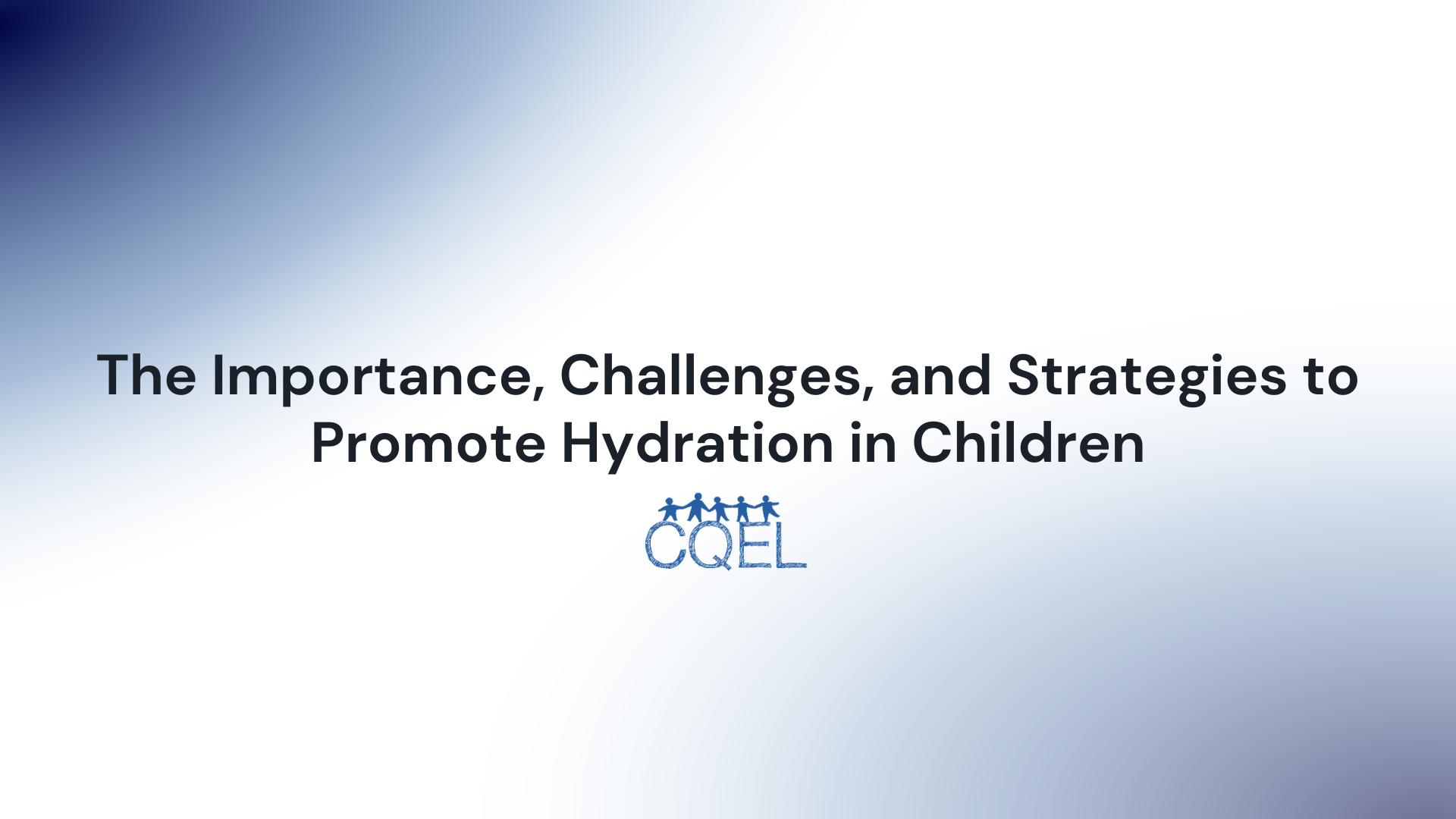The Importance, Challenges, and Strategies to Promote Hydration in Children
As providers, we are tasked with nurturing both minds and bodies, and promoting hydration in children should be a key element of this responsibility. This post delves into the importance of hydration, the challenges it poses, and practical tips to promote healthy drinking habits in children.

Hydration, while a fundamental aspect of human health, often doesn't receive as much attention as it deserves in the realm of childcare. As providers, we are tasked with nurturing both minds and bodies, and promoting hydration in children should be a key element of this responsibility. This post delves into the importance of hydration, the challenges it poses, and practical tips to promote healthy drinking habits in children.
Understanding the Importance of Hydration
Water forms the majority of a child’s body weight and is crucial for their physical health and cognitive functioning. It aids digestion, removes waste, regulates temperature, and cushions vital organs. Hydration also directly impacts cognitive performance, influencing attention, memory, and mood in children, as outlined in this European Journal of Nutrition article.
Between a Sip and a Gulp: Challenges in Promoting Hydration
Despite its importance, ensuring children remain adequately hydrated can be challenging. Children, especially younger ones, might not recognize when they're thirsty or overlook drinking water when engaging in activities. Additionally, some children may resist drinking water, preferring sugary beverages instead.
Making Waves: Practical Tips to Promote Hydration
A multi-pronged approach can make promoting hydration more effective. Here are some suggestions:
- Lead by Example: Children imitate adults, so let them see you drinking water regularly.
- Accessibility: Ensure water is easily accessible. For smaller children, consider using child-sized water bottles or cups.
- Add a Splash of Flavor: If a child resists drinking plain water, infuse it with fruits for a hint of natural sweetness. The American Heart Association provides some recipes.
- Creative Reminders: Use games or charts to remind children to drink water and make hydration fun.
- Education: Teach children about the importance of water for our bodies and the planet.
Promoting hydration is an essential aspect of childcare that contributes to children's overall health and academic performance. By understanding its importance, recognizing the challenges, and implementing effective strategies, we can ensure the children in our care are well-hydrated and ready to learn.
Books that Make a Ripple: Educational Reads on Hydration
- "The Water Princess" by Susan Verde and Peter H. Reynolds: Based on a true story, this book provides a perspective on the value of clean water and how some children, like Gie Gie, must walk miles each day to collect it.
- "All the Water in the World" by George Ella Lyon and Katherine Tillotson: This beautifully illustrated book talks about the water cycle in an engaging way, making it an excellent choice for introducing children to the concept.
- "Why Should I Save Water?" by Jen Green: This book is an excellent resource to teach children about the importance of water conservation, indirectly emphasizing the value of water.
Water-Focused Activities: Make a Splash in the Classroom
- The Importance of Water Activity: Kick off a discussion about why our bodies need water. Then, have children draw a picture or write a story about a day without water. This exercise can help them appreciate its essential role in our lives.
- Hydration Chart: Encourage children to monitor their water intake by creating a hydration chart. Every time they drink a glass of water, they can add a sticker or a mark on the chart.
- Fun with Fruits: Host a fruit-infused water-tasting session. Let children experiment by adding different fruits to water and taste the result. This fun activity can also encourage children to drink more water.
- Water Relay Race: A relay race where children must carry water in a sponge or a cup to fill a bucket can be fun and a metaphor for how our bodies transport and use water.
- The Big Thirst by Charles Fishman Reading and Discussion: For older children, reading excerpts from this book and facilitating a discussion can make them aware of the global water crisis and the importance of water conservation.
In conclusion, incorporating hydration-themed books and activities into the curriculum can go a long way in promoting a water-friendly culture among children. Not only does this foster healthy habits, but it also sets the stage for future learning about the environment and sustainability. Remember, every drop counts!
